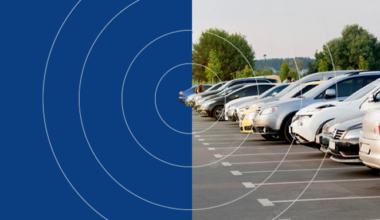Parking cash-out schemes have exploded in popularity over the last few years. They have emerged as a key tool for employers who are looking to reduce car usage.
What exactly is a parking cash-out scheme and how can I roll one out in my company? Let’s have a look.
What is a parking cash-out scheme?
Simply put, parking cash-out schemes pay people to not park at work. Now this might seem a little counter-intuitive. But think about it.
Lets say a company is paying $3,000 a year to rent a parking space for a staff member. If they offer the employee $200 a month as a parking cash-out they are actually saving money.
When done at scale it can be a great way to reduce overall parking spend. Of course, there are a whole host of environmental benefits too.
Hold on a minute, can the employee just use the money to pay for parking elsewhere? The answer here is that it depends. Some companies like to offer parking cash-outs on the basis that employees do not drive to work at all.
Revamp your employee parking operations
Find out how Wayleadr can help you manage employee parking and reduce parking-related issues
Get a DemoOthers are happy for employees to use the money to park off-site. Potentially closer to a public transport or micro-mobility hub.
What type of companies should have a parking cash-out scheme?
Cash-out schemes are becoming popular with a broad range of employers. However, they are most common with employers who have a well paid and highly educated workforce.
These employees can be demanding and often times they expect parking as a perk at work. For companies to make inroads in decreasing car commuting, they often need to introduce cash-out schemes.
This has the benefit of heavily incentivising behaviour change while also saving the business money.
How to implement a parking cash-out scheme?
Ok so there are a few questions you need to figure out when it comes to implementing a parking cash-out scheme.
Do you want to make it a daily, weekly, monthly or yearly benefit?
The first question to ask, is how you would like to structure the benefit? Would you like it to be daily, weekly, monthly or yearly.
There are different advantages to each option. Companies who opt for a daily parking cash-out model are emphasising flexibility. They understand employees need their cars sometimes but they want to hang a carrot to incentivize them to leave the cars at home if not needed.
More medium terms options such as weekly, monthly are more focused on employees who might have seasonal needs. These needs might be business or personal. For example, an employee with school going children might need to drive during term time. However, during school holidays they can take other transport.
Yearly focuses on fixed behavioural change, it is there to incentivise people to stop commuting by car for good.
Shorter term options tend to work best for companies who have a large demand for a limited amount of parking spaces. While longer term works for companies who are looking to make definite savings on car park spend.
How to manage an employee parking cash-out scheme?
So there’s an easy way and a hard way to manage cash-out.
The easy way is to use Wayleadr.com, the world’s most popular employee parking management software. This allows companies to automate all aspects of the employee parking cash-out.
Car park usage can be monitored. If someone parks for work it can be deducted from their cash-out. It makes thing super simple, rolling out complex cash-outs in minutes.
The alternative is to try and manage things manually. For small companies operating yearly policies this can work. If you only need to track 3 or 4 employees it is not too challenging to do.
However, if you have more than this it quickly can turn into a nightmare. The rise of flexibility in the workplace has made parking behaviours harder than ever to track hence.
For other tips on how to reduce employee car usage, check out this blog.
Join industry leaders from companies like Sanofi, Indeed.com & CBRE, schedule a demo with Wayleadr.com today and solve your parking problems in the click of a button.



